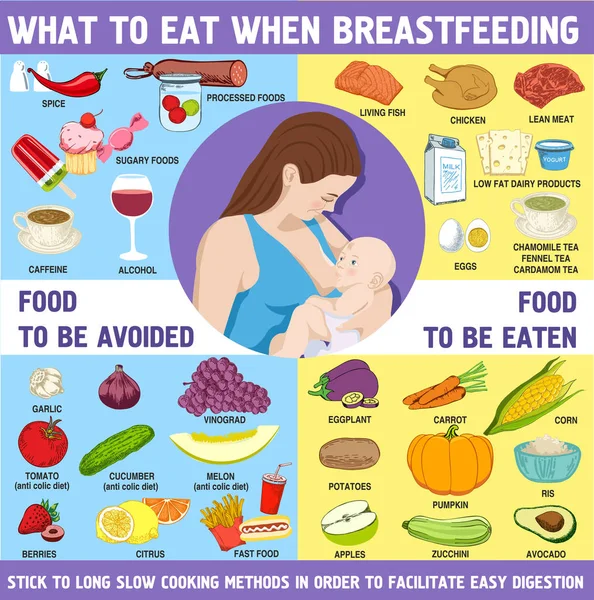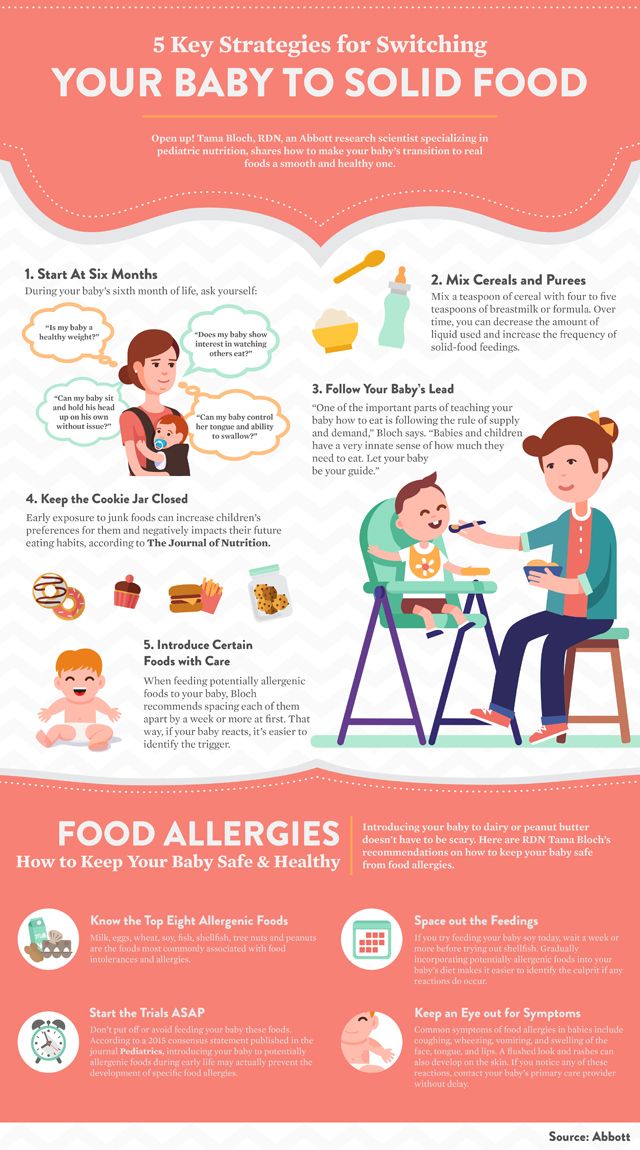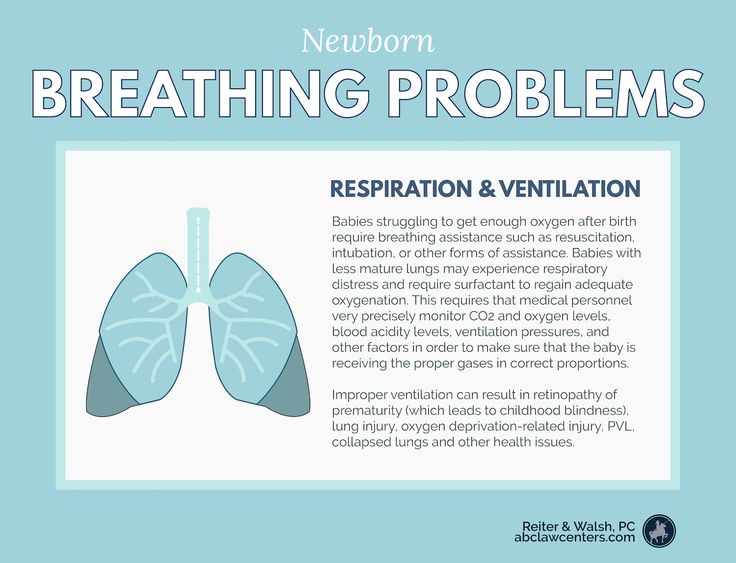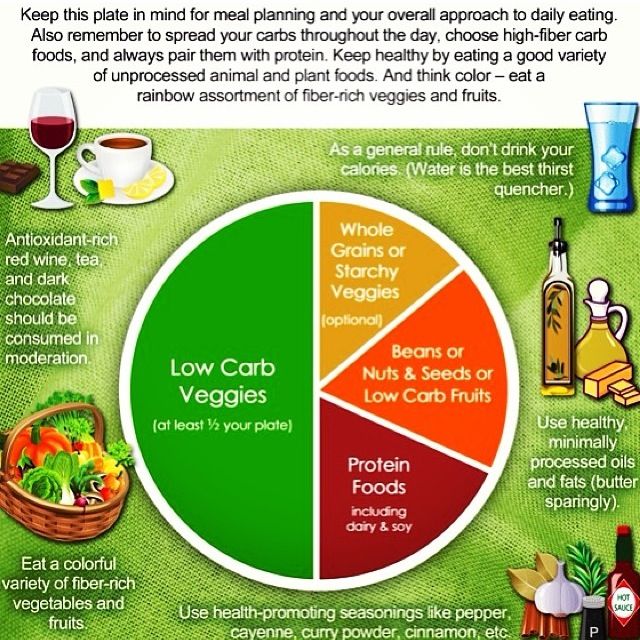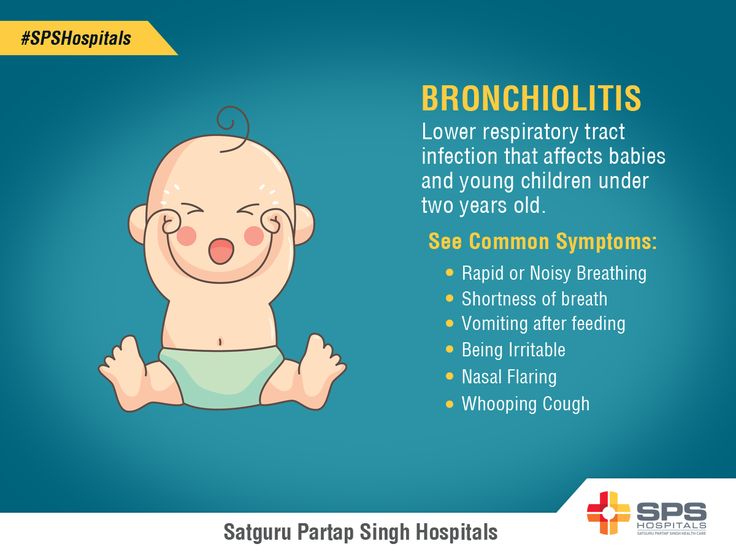Food poisoning and breastfeeding baby
What to Do and How to Treat It
It can seem like there’s nothing worse than food poisoning — except maybe getting food poisoning while parenting. Not only do you feel terrible, but it can feel like you can’t catch a break. The parenting must go on, multiple trips to the bathroom and all.
And if you’re a nursing parent, you may face an added stress: the uncertainty of whether you can continue.
That’s a valid worry — after all, you don’t want your child somehow catching a food-borne illness through your milk. But thankfully, having food poisoning while breastfeeding is generally not a problem, according to 2017 research.
So you can (and should) keep nursing your baby.
As the Centers for Disease Control and Prevention (CDC) explains, you don’t have to stop breastfeeding when you have food poisoning, which is a non-medical term for a food-borne disease or infection.
In fact, the CDC actually recommends that you should continue breastfeeding.
But wait, there’s more: The CDC also encourages you to nurse even more frequently, while also increasing your own fluids.
Why? Because breastfeeding more frequently while you have food poisoning helps protect your baby from contracting the illness, too. It’s also excellent rehydration therapy if your baby has diarrhea.
No one wants their baby to be exposed to a pathogen that causes uncomfortable and potentially worrisome symptoms. So it makes sense to want to know about the potential risks of breastfeeding while you have a bout of food poisoning, despite expert assurance that you should continue.
Here’s what to know about the potential (but unlikely) risks of breastfeeding with food poisoning:
Danger to breastfeeding parent
Although food poisoning certainly isn’t a comfortable experience, most adults fare well and are back to health after a couple of days. However, adults who are older, immunocompromised, or pregnant may have a tougher time and may require medical attention if the situation becomes severe.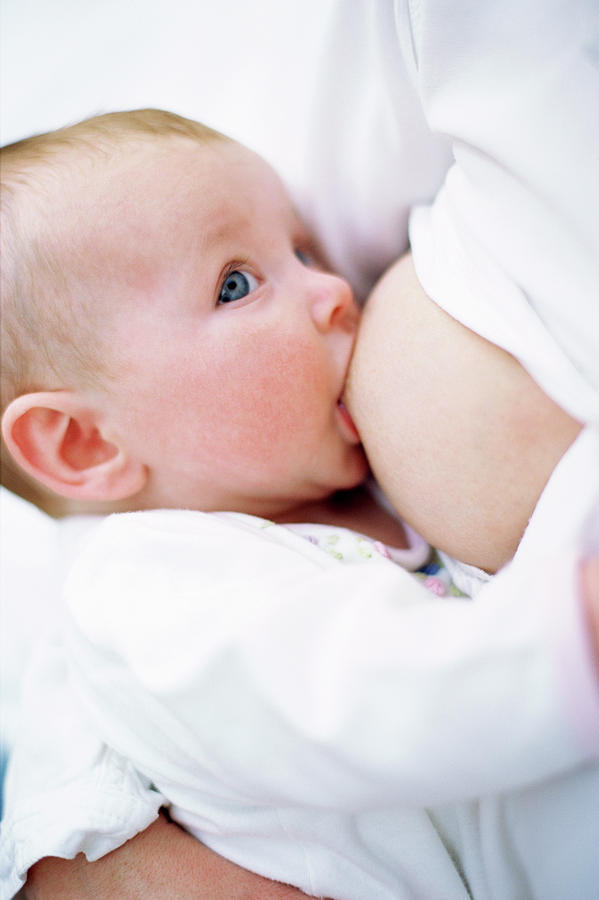
But it’s important to remember that even moderate cases of food poisoning can cause dehydration. Some breastfeeding parents notice drops in their milk supply after illnesses like food poisoning. That’s why it’s important that you stay well hydrated.
If you do notice a drop in your milk supply, it should be temporary. Nursing more frequently and replenishing your fluids should resolve things.
Danger to breastfed baby
As the CDC notes, almost all the organisms that cause food poisoning don’t get into breast milk, so there’s virtually no danger of your baby getting food poisoning from breastfeeding.
However, it’s possible that your baby could pick up the germ that made you sick from another source outside of your breast milk — for example, if baby had a taste of whatever food contained the pathogen.
Regardless, your breast milk can help protect your little one from infection. And if they do get sick, your milk will keep them properly hydrated and nourished.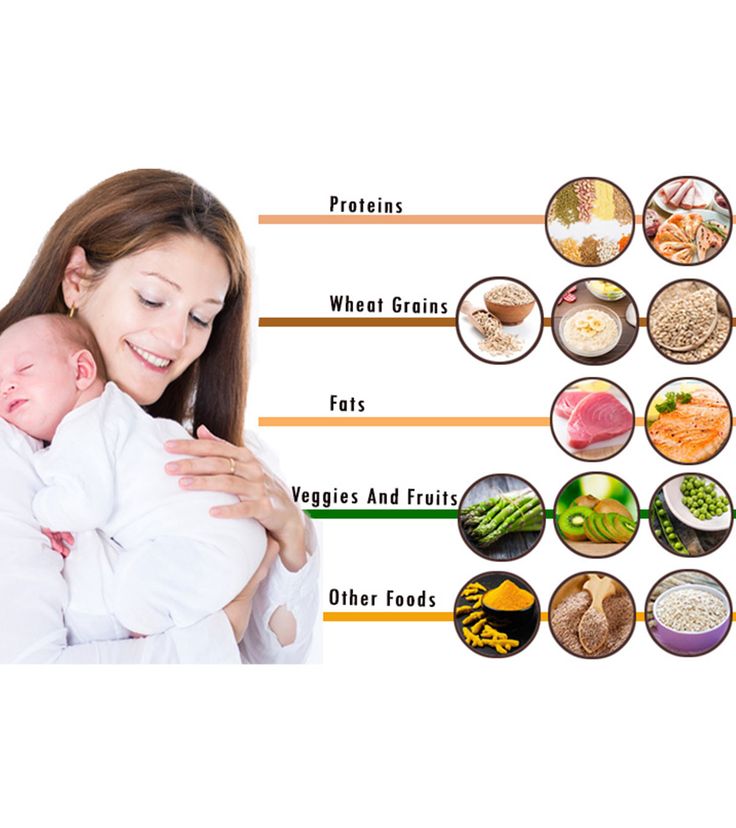
It can be easy to try to just push yourself through when you’re parenting with food poisoning. But it’s important to take care of yourself, too.
Additionally, you’ll want to be sure to take some steps to minimize passing an infection onto your baby or other children.
Here are some tips for getting through food poisoning while breastfeeding:
- Stay hydrated. Dehydration is the biggest concern when it comes to food poisoning. Even if you can’t keep food down, it’s important to continue drinking plenty of water. Consider adding some fluids meant to replenish and balance your electrolytes, too.
- Avoid Pepto Bismol. Products with oral rehydration salts are compatible with breastfeeding. However, products containing bismuth subsalicylate compounds, like Pepto Bismol, may not be safe.
- Seek medical attention. If your symptoms are lasting more than 1 or 2 days, you have a persistent fever, or you’re severely dehydrated, seek medical attention.
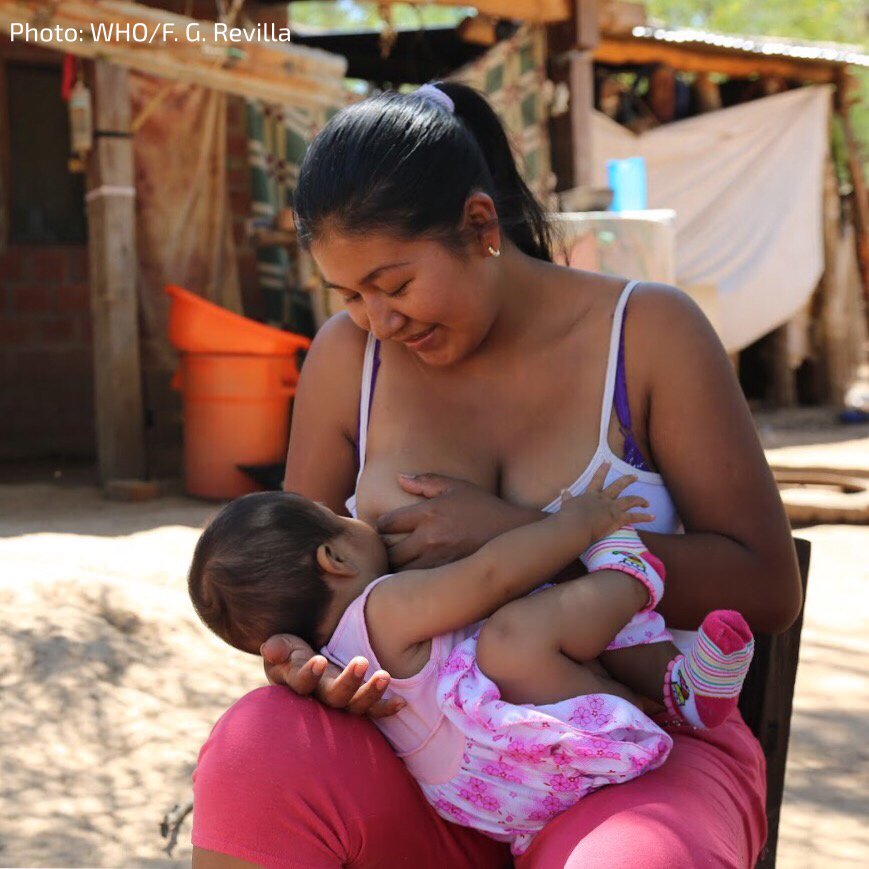 In some cases, your doctor may prescribe medication to help your symptoms or to treat the infection.
In some cases, your doctor may prescribe medication to help your symptoms or to treat the infection. - Ask a doctor about medication. If you’re unsure whether a product, medication, or antibiotic used to treat food poisoning is compatible with breastfeeding, talk with your doctor. You can also check the LactMed database, where you can find information about different substances and medications as well as their impact on breastfeeding.
- Wash your hands frequently. Over the course of your illness, wash your hands frequently with soap and water after using the toilet and after vomiting. Give your hands an extra wash before holding or nursing your baby.
- Minimize risk to others. Consider sanitizing any high touch surfaces like door handles, light switches, and toilet handles. Clean food prep areas well. Additionally, make sure that anything your baby touches or puts into their mouth — such as pacifiers, nipples, and teethers — have been thoroughly cleaned.
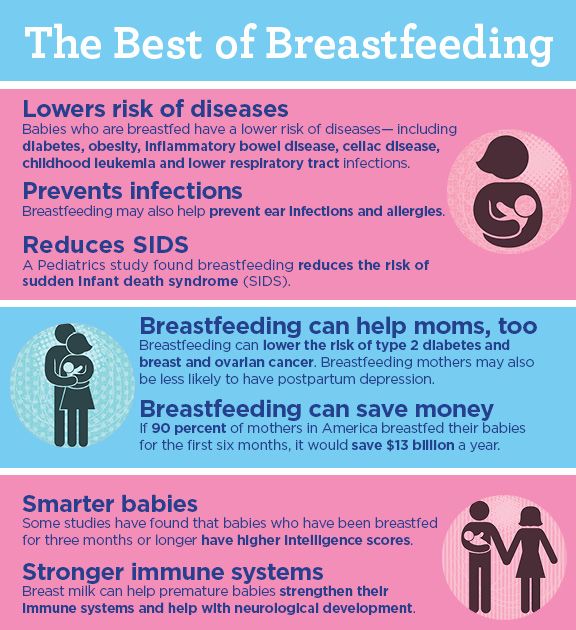
Remember, it’s important to take care of you so you can take care of your baby.
Most food poisoning symptoms — which can include nausea, vomiting, diarrhea, and stomachache — resolve within 1 or 2 days and don’t require medical attention.
However, visit a healthcare professional if you experience any of the following symptoms:
- bloody diarrhea
- high fever of over 102°F (38.8°C)
- inability to keep fluids down
- dehydration
- diarrhea that lasts for 3 or more days
Food poisoning is linked to a food or drink you ingested that was contaminated. The main symptoms of food poisoning are gastrointestinal — such as vomiting, diarrhea, and upset stomach.
Respiratory symptoms such as coughing, sneezing, or congestion are usually not caused by food poisoning.
However, food poisoning can sometimes cause fever. If you’re unsure if you’re experiencing food poisoning or something else, consult with your doctor.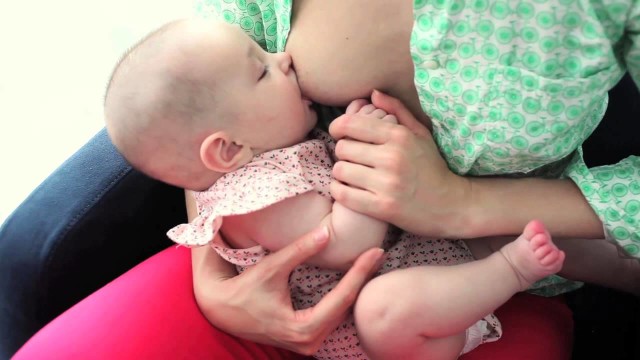
It’s never fun getting sick, and you might worry about what food poisoning in particular means for you as a breastfeeding or chestfeeding parent.
The good news is, you can — and should — continue breastfeeding your baby even if you get food poisoning.
Your breast milk should not give your baby food poisoning, and in fact, it can help protect them from contracting the germ that caused the food poisoning.
If you have any questions about a food-borne illness while breastfeeding, talk with your child’s pediatrician. And if you or your baby have severe symptoms or become severely dehydrated, seek emergency medical care.
6 tips for breastfeeding when you have food poisoning
Photo by Dave ClubbWe traveled to Phuket, Thailand, when baby was 7 months old and unfortunately on that trip I managed to pick up food poisoning from a meal or water we ate or drank somewhere. I narrowed it down to two places that I ate at but, as is often the case, it was hard to tell for sure where exactly the poisoning came from.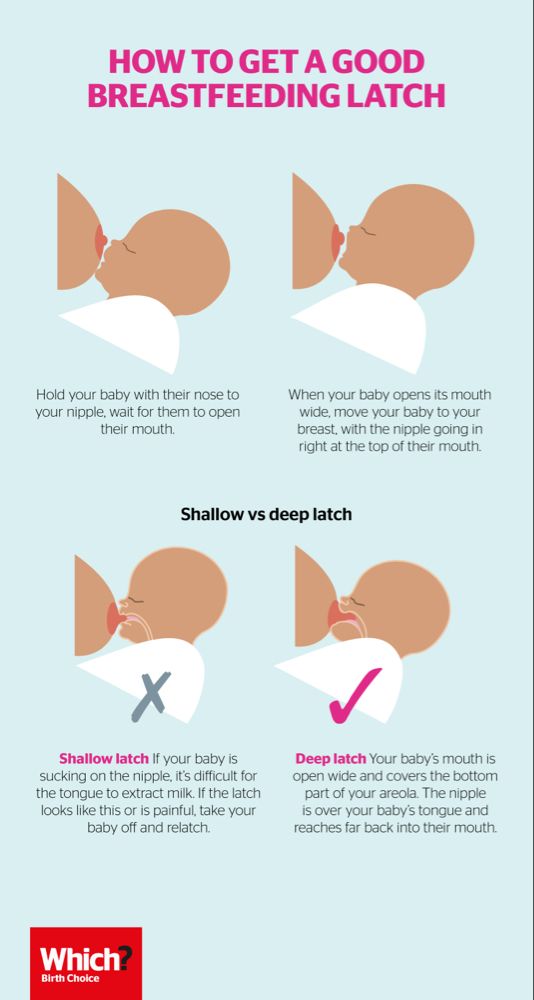 Having food poisoning while taking care of a 7 month old baby presented three main challenges in terms of breastfeeding: two of which passed quickly and the other having seemingly slightly longer term implications.
Having food poisoning while taking care of a 7 month old baby presented three main challenges in terms of breastfeeding: two of which passed quickly and the other having seemingly slightly longer term implications.
Challenge #1:
The first challenge was finding out whether I could pass on the infection to the baby through the breast-milk. Some people in the know may think this sounds crazy but, for me, I knew that so many other viruses and substances that the mother ingests (medicines, alcohol etc.) can be passed through breast-milk, and so I wanted to be sure that I wouldn’t pass any harmful infection on to the baby. In terms of food poisoning, the one thing worse than having horrible symptoms of your own, would be having to watch your baby suffer through those horrible symptoms. It turns out that breastfeeding after food poisoning is fine in most cases. I found this article on kellymom about breastfeeding when sick to be helpful. Additional useful information from the CDC on breastfeeding with food-borne and waterborne illnesses like travelers diarrhea.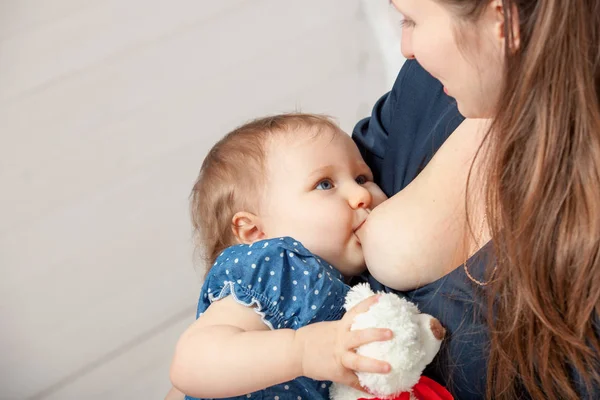
What the experts say:
A nursing mother with diarrhea believed to have been caused by food or water sources should be encouraged to increase the frequency of breastfeeding while significantly increasing her own fluid intake… The organisms that cause travelers’ diarrhea do not pass through breast milk. Use of oral rehydration salts by breastfeeding mothers and their children is fully compatible with breastfeeding. Breastfeeding mothers should carefully check the labels of over-the-counter antidiarrheal medications to avoid using bismuth subsalicylate compounds, which can lead to the transfer of salicylate to the child via breast milk… Most experts consider the use of short-term azithromycin [antibiotic] compatible with breastfeeding.
Centers for Disease Control and Prevention
As long as the symptoms are confined to the gastrointestinal tract (vomiting, diarrhea, stomach cramps), breastfeeding should continue without interruption as there is no risk to the baby.
Kellymom.com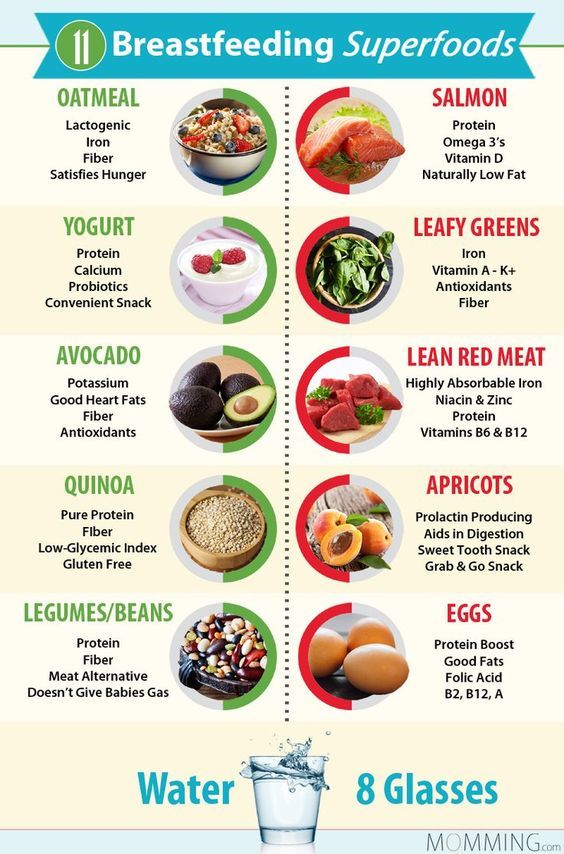
Challenge #2:
The second challenge was getting through the 2 – 3 days where I was feeling very sick – the first 24 hours being the worst. Without getting into too much undesirable information here, I could barely make it to the bathroom, did not leave the hotel room for at least 36 hours, was not able to drink very much and was able to eat only dry, plain crackers.
Needless to say, taking care of a crying, pooping, hungry baby was not easy. I had barely any energy to lift a glass of water, never mind lift the baby to breastfeed her, and it was so hard to be patient when she was crying. It is no fun trying to care for the baby when you can barely even take care of yourself, but we did because there is no alternative! I do think she sensed that something was wrong though, and was calmer for us.
Challenge #3:
3. The third challenge was the implications on our breastfeeding quantity, which I was not aware of until after it had happened.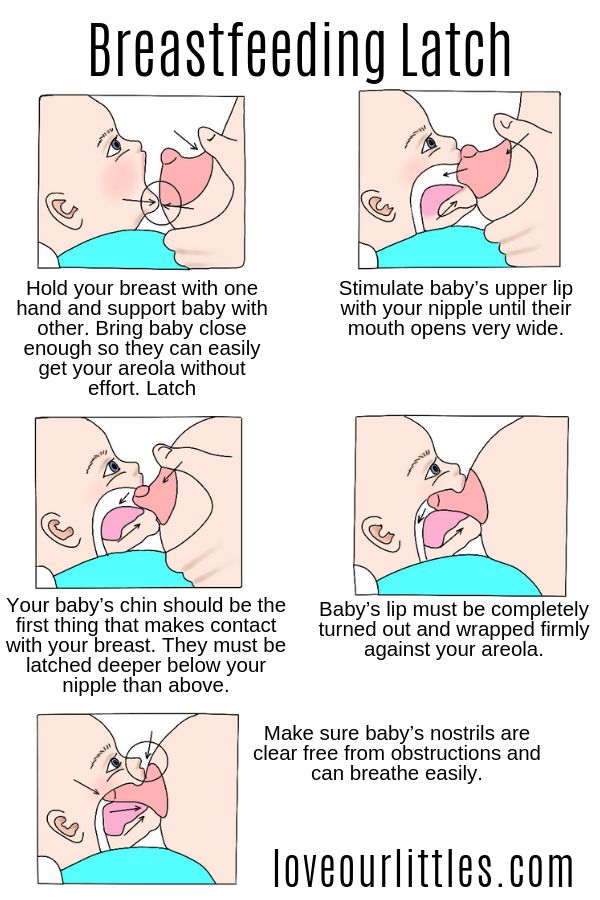 Normally, her most filling breastfeed was first thing in the morning when we would wake up, and then each feed later in the day was a little smaller than. On the first morning after being awake all night with the food poisoning symptoms, I could tell my breasts were not as full as they normally would be at that time in the morning, after not having fed her for about 9 hours or so.
Normally, her most filling breastfeed was first thing in the morning when we would wake up, and then each feed later in the day was a little smaller than. On the first morning after being awake all night with the food poisoning symptoms, I could tell my breasts were not as full as they normally would be at that time in the morning, after not having fed her for about 9 hours or so.
I could barely lift the baby and I decided not to breastfeed her that morning so I asked my partner to feed her the solid food breakfast earlier than usual. I knew I had lost a lot of liquids through diarrhea and sweating, and not being able to keep up my usual water intake. And I knew that dehydration could have a detrimental effect on breastfeeding.
I figured that by the next day I would be better hydrated and the milk supply would be back to normal. Although I had been drinking some oral rehydration salts in my water, I unfortunately had not been able to consume as much liquids that first daytime as I had hoped and I was still very dehydrated.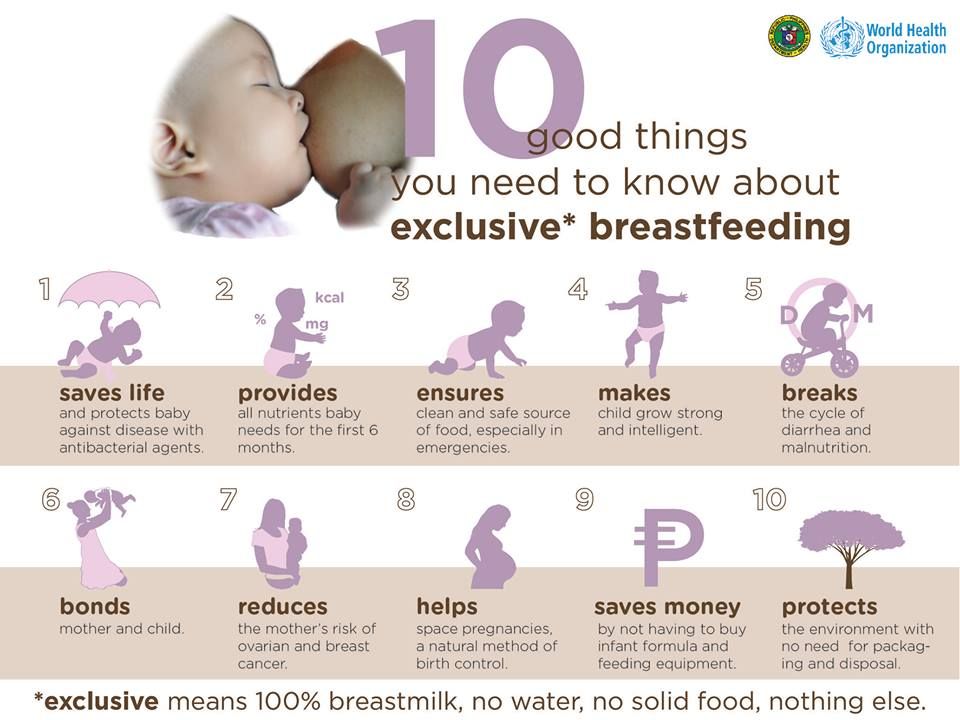
On the second day after the food poisoning, I woke up again with my breasts not as full as they usually would be first thing in the morning. This time, I was strong enough to hold the baby and I fed her, but I knew it would not be enough to fill her and so straight after that I gave her some solids (whereas normally we would wait an hour or two until ‘solid food breakfast’).
The same thing happened on the third morning. And by the fourth morning, I began to wonder if we had entered a ‘new normal’ in that my body was producing less in the morning now as standard, rather than because I was sick.
After recovery…
Unfortunately, my ‘normal’ milk supply and full-feeling in my breasts never returned after that bout of food poisoning, even two months later as I write this.
Now, if the baby was still under 6 months old and exclusively breastfeeding this whole scenario would have been much more challenging and stressful, but we were fortunate in the timing since she was already used to eating solid food and had been doing so for just over a month.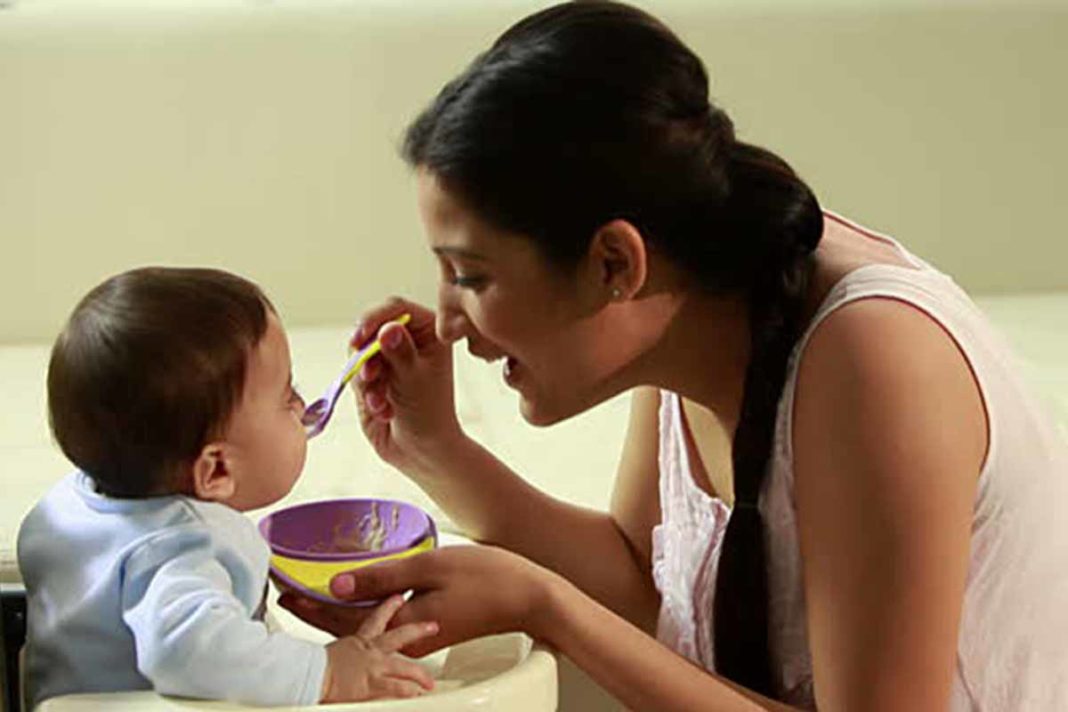 It was therefore easy to supplement more of the solids to compensate for the reduced amount of breast-milk. Had we not been able to add more of the solids, we would have struggled more as she would have been hungry and crying more. In that scenario, it would have been good to be able to use some previously expressed milk stored in a fridge or freezer, however, when you’re traveling you may not have access to a pump or to a fridge or freezer or facilities to sterilize all the necessary equipment for expressing milk.
It was therefore easy to supplement more of the solids to compensate for the reduced amount of breast-milk. Had we not been able to add more of the solids, we would have struggled more as she would have been hungry and crying more. In that scenario, it would have been good to be able to use some previously expressed milk stored in a fridge or freezer, however, when you’re traveling you may not have access to a pump or to a fridge or freezer or facilities to sterilize all the necessary equipment for expressing milk.
Medical advice in this scenario is to increase the frequency of the breastfeeding sessions and increase intake of liquids. However, having been in the position of being very sick and unable to even lift or barely hold my baby, I’m not sure this will work in every situation. If your baby is not on solids yet and/or is not used to drinking milk or formula from a bottle, food poisoning could potentially be a concern for you on your travels to consider how you would ensure baby gets enough to feed on.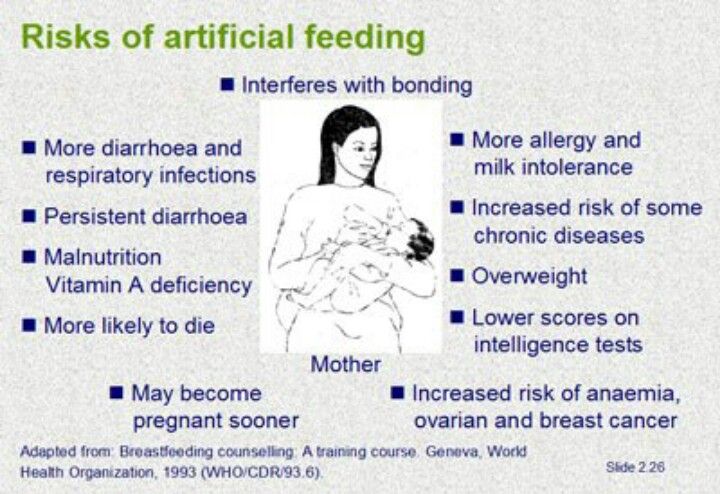
6 practical tips on breastfeeding when you have food poisoning…
- try to avoid or minimize consumption of foods that are known to increase the chances of contracting food poisoning (for example, shell fish, raw foods like salads, unpasteurized dairy, ice cubes, meat not thoroughly cooked) and to eat at places that look busy and/or are well reviewed by many others;
- carry a supply of oral re-hydration salts with you when you travel to help re-hydrate more quickly;
- carry a supply of loperamide (Imodium) anti-diarrheals, which are considered compatible and safe with breastfeeding;
- wash your hands often – after going to the bathroom and before touching baby – to minimize risk of passing any germs;
- try to consume as much water as possible, even if you don’t feel like it and it’s difficult to swallow down: you need the liquids for re-hydrating your own body so that you can keep producing milk for baby;
- if you feel that your milk supply has decreased, as mine did, increase the frequency of the feedings so that your body gets the message to keep producing more for baby (according to the body’s supply and demand mechanisms of breast-milk production).
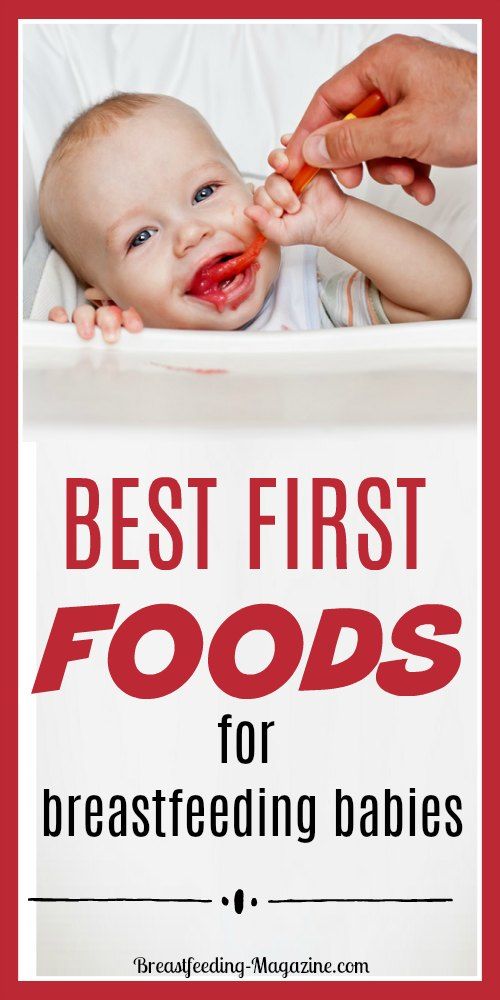
Wishing you safe and healthy travels with no food-borne or waterborne illnesses!
Food poisoning in a child - rules for prevention and treatment There are frequent cases when, even in the treatment of children, parents do not resort to the help of doctors, but manage with a “standard” set of funds from grandmother's recipes or advertising on TV. Gastric lavage with potassium permanganate, taking activated charcoal or some other absorbent, this is the usual set in the hands of an “experienced” parent. However, not everyone clearly understands the essence of intoxication of the body, not everyone can correctly determine its nature and predict the consequences. Not everyone knows that in some cases, poisoning can cause deadly bacteria, such as botulism, and sometimes it happens that a completely different disease is hidden under the symptoms of intoxication of the body, for example, heat stroke. And while parents are trying to overcome the false poisoning of the child, they lose precious time, which can lead to a sharp deterioration in the condition and serious consequences.
 nine0003
nine0003 Given all of the above, it should be noted that parents should not self-medicate, even if it seems to them that it is food poisoning in a child and that they themselves will quickly cope. We recommend that you always seek medical attention, although if possible, take some steps to alleviate the child's condition. We will describe how to prevent food intoxication and what to do if it occurs.
We also recommend reading the resource "Protecting children from the sun", where you will learn about the dangers of the scorching summer sun, about common myths about this and about the correct methods of protection. If you are raising a teenager and have begun to notice oddities in their behavior, then we recommend reading an important article about common signs of drug addiction in teenagers. nine0003
Children will not get food poisoning if adults follow simple rules
Food poisoning in children - possible routes of intoxication and their symptoms
Their immune systems are still not strong enough.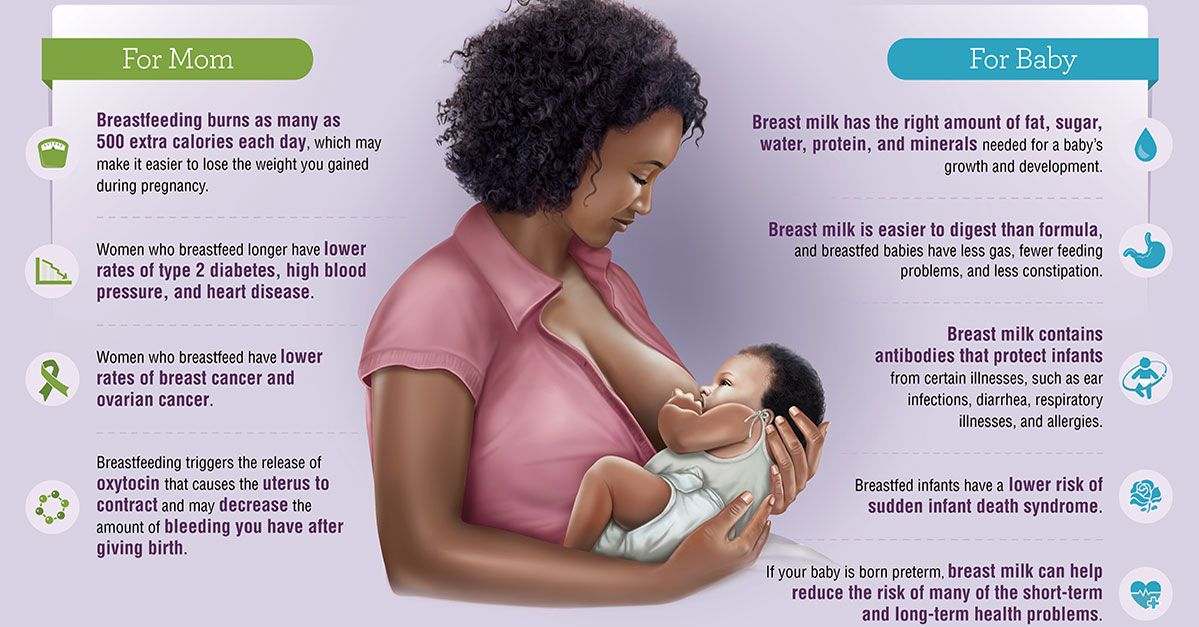 Food poisoning in children, as well as in adults, most often occurs when eating food that is contaminated with microbes. Separate manifestations in two forms - toxic infection, as well as intoxication. nine0003
Food poisoning in children, as well as in adults, most often occurs when eating food that is contaminated with microbes. Separate manifestations in two forms - toxic infection, as well as intoxication. nine0003
Usually, toxic infection is caused by microbes belonging to the Salmonella group, as well as para-Escherichia and Escherichia coli. Be aware that salmonella is very common and often infects the intestines of birds and animals. And when the animal's body weakens and, accordingly, its protective functions, too, salmonella infect all internal organs. Such meat, having got on the table to people after a weak heat treatment, causes poisoning. Salmonella can also infect eggs, pies, milk, cheese, fish and cottage cheese. Symptoms of poisoning usually occur after a few hours or later, depending on the dose, the organism and the nature of the poisoning. The child begins to feel nausea, vomiting, headache, stools are frequent and liquid, body temperature rises. The disease lasts from two days to a week and in most cases ends in recovery. nine0003
nine0003
Food Intoxication of the child's body occurs as a result of eating, which contains poisons in the form of microbial waste products. They are called toxins. Most often, such poisoning is caused by staphylococcus aureus. It, as a rule, gets into ready meals from those who have pustular skin diseases. Poisoning through cakes, ice cream, pastries, sausage, ham, sausages and so on is common. Even when ingested in raw foods, this toxin is not easy to destroy. At the boiling point, it does not collapse for several hours. Symptoms of poisoning usually appear in time in the same way as with toxic infection. The clinical picture and course of the disease are similar. nine0003
Botulism causes a very dangerous poisoning of the body, which without urgent medical intervention can result in the death of a child. Botulism bacteria thrive in an oxygen-free environment and produce a strong toxin. It is destroyed after 20 minutes of boiling, but in order to destroy the spores themselves, it is necessary to maintain a temperature of 120 degrees Celsius for 10 minutes.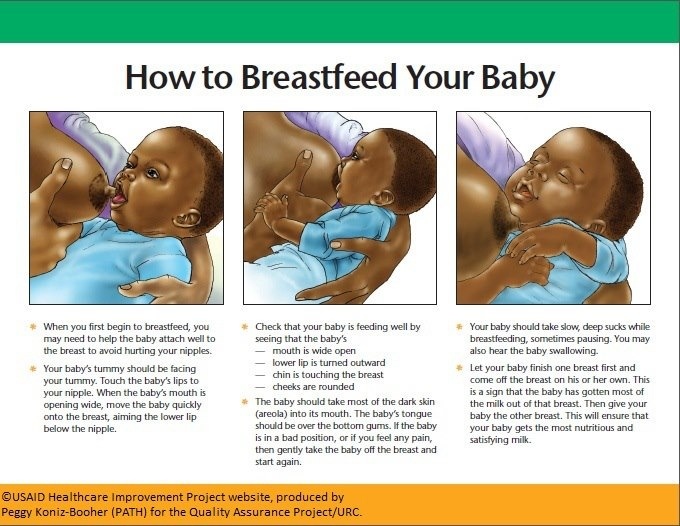 The most common source of poisoning are all kinds of canned foods, namely meat, fish, vegetables. But cases of intoxication were also observed through the earth, which was contaminated with the feces of sick animals. The onset of the disease occurs after a couple of hours, although an incubation period of several days is sometimes possible. The child feels dry mouth, dizziness, general weakness and shortness of breath, the pulse quickens, paralysis of the eye and facial muscles, as well as the muscles of the soft palate and tongue, occurs. Because of this, a disorder of speech, vision and swallowing occurs - the child chokes and begins to distinguish poorly between nearby objects and text. The toxin affects the nervous apparatus of the heart and the central nervous system. The disease lasts 4-8 days, is difficult and without medical intervention can lead to death due to paralysis of the respiratory center. nine0003
The most common source of poisoning are all kinds of canned foods, namely meat, fish, vegetables. But cases of intoxication were also observed through the earth, which was contaminated with the feces of sick animals. The onset of the disease occurs after a couple of hours, although an incubation period of several days is sometimes possible. The child feels dry mouth, dizziness, general weakness and shortness of breath, the pulse quickens, paralysis of the eye and facial muscles, as well as the muscles of the soft palate and tongue, occurs. Because of this, a disorder of speech, vision and swallowing occurs - the child chokes and begins to distinguish poorly between nearby objects and text. The toxin affects the nervous apparatus of the heart and the central nervous system. The disease lasts 4-8 days, is difficult and without medical intervention can lead to death due to paralysis of the respiratory center. nine0003
Please note that botulism spores may contain canned honey, even commercially produced honey.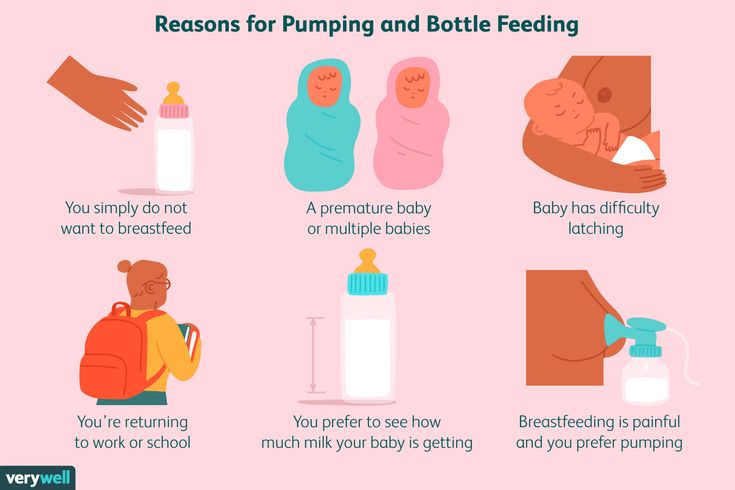 Therefore, in no case should you give such honey to children under one year old, they may develop infant botulism. And for adults, it is usually harmless.
Therefore, in no case should you give such honey to children under one year old, they may develop infant botulism. And for adults, it is usually harmless.
In infants, botulism, as a rule, begins precisely with constipation, then the baby begins to make sucking movements poorly and swallows with difficulty, his eyelids begin to weaken, he weakly makes sounds or words, and general impotence develops. nine0003
Non-bacterial poisonings are usually due to the consumption of poisonous mushrooms, fish or light-green potatoes, which accumulate poisonous solanine under their skin. Many mushrooms are poisonous in nature, and there are many false mushrooms, remember that it is not recommended for children to eat mushrooms at all until they are 12 years old. Especially often they are poisoned by mushrooms - lines that are very similar to edible morels. Only stitches in dry weather develop poisonous gelvellic acid, a very potent poison that is resistant to heat. Pay attention to the photos and avoid buying and picking similar mushrooms.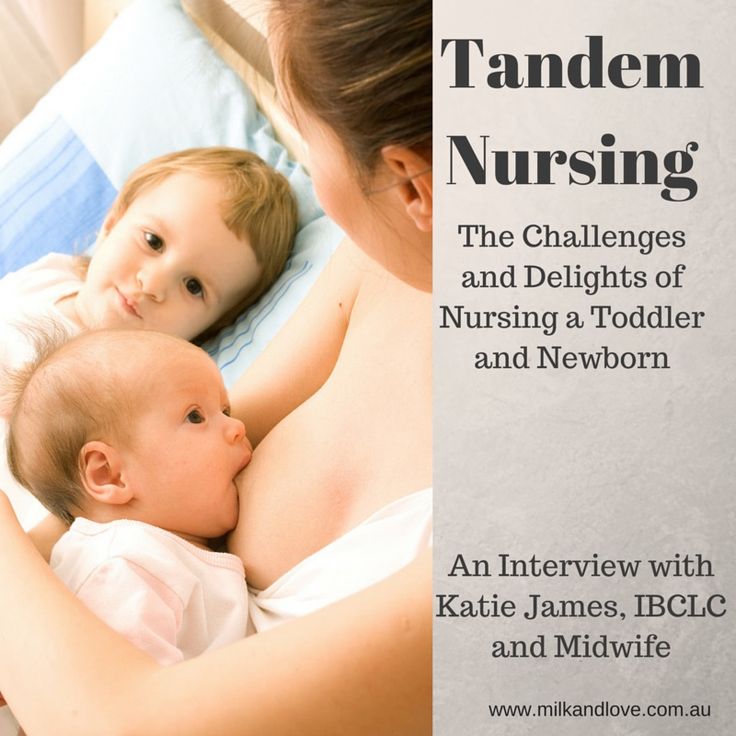 nine0003
nine0003
Poisonous - line. Edible morel.
Toxin poisoning of some fish may be due to improper handling or transport. For example, mackerel produces poisons if it is not frozen in time. Also keep in mind that children should not be given Japanese sushi with fish or shrimp, which can also serve as a source of dangerous poisoning.
Food poisoning in children - disease prevention
Here are the basic rules for the prevention of food poisoning in children:
- Adults should remember the first and most important rule from school: “wash your hands before eating”, and this is not just a general slogan, but a vital necessity. Washing hands before eating reduces the risk of poisoning several times.
- Further, the second rule is to thoroughly wash the foods that you eat raw - vegetables and fruits. Do not give raw milk and eggs to children. Pasteurized milk from the store is also recommended to boil.
- Prevent children from eating "adult" foods such as Japanese sushi, smoked fish, mushrooms, and so on.
 nine0050
nine0050 - The meat of birds, animals, must undergo careful temperature treatment, use the rule: "you can't digest the meat." The same applies to fish, seafood and eggs.
- When canning at home, strictly adhere to the technology and temperature regime for the destruction of botulism spores. Do not use homemade or factory-made products that bulge bags, jars, or lids (also called bombing). Do not eat foods with a suspicious smell or texture. nine0049 Keep perishable foods in the refrigerator only during their expiration date and in a container with a closed lid. Remember that cakes, cream cakes, salads with mayonnaise, open packages of food and drinks that do not contain preservatives, such as natural juices, spoil very quickly. Remember the approximate storage time of popular products in the cold up to 8 degrees (without cold, it is much less, and sometimes products cannot be stored at all without cold). Of course, modern preservatives can extend the life of some products, but do you need to risk the health of your children in vain.
- Cottage cheese mass, curd cream or cheese curds - in the cold up to 24 hours (cannot be stored without cold).
- Pies fried with meat or fish - in the cold up to 24 hours, in a cool place up to 12 hours.
- Cake with butter cream - in the cold up to 6 C °, the shelf life is up to 36 hours, in a cool place up to 12 hours.
- Custard tart - refrigerate up to 6 hours, cannot be stored without refrigeration.
- Serve hot fish or meat dishes on the table soon after cooking, do not store perishable food outside the refrigerator. nine0050
- Always check the expiration date of products when buying and before eating.
- Do not buy very early fruits and vegetables (such as tomatoes, watermelons, melons or strawberries), they tend to be high in chemical growth stimulants that can cause acute poisoning.
- Do not buy food in questionable places from hands or trays. Especially in the hot season, especially on the beach, especially meat products (chebureks, belyashi, etc.
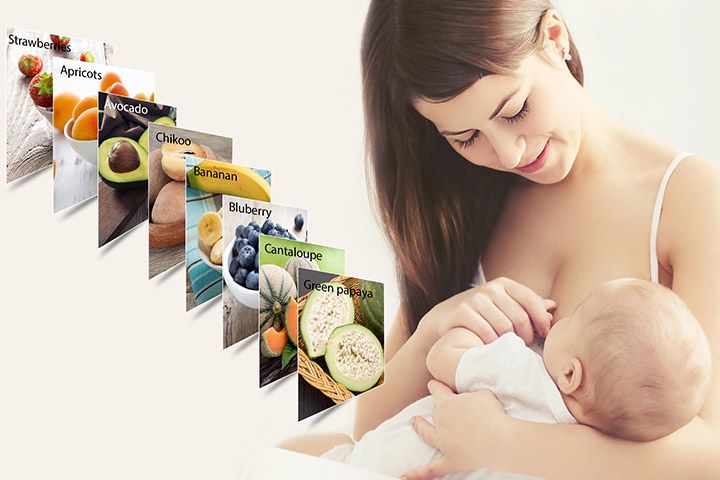 ), especially for children! Remember that meat in the sun after 20-30 minutes can turn into poison. nine0050
), especially for children! Remember that meat in the sun after 20-30 minutes can turn into poison. nine0050
 nine0050
nine0050 Parental actions if a child has food poisoning
Providing medical care for food poisoning
When a child has food poisoning, the most important thing is to provide the child with medical care promptly. If you are on vacation, then contact the administration of the hotel or recreation center so that they take urgent measures. If you are at home, then, depending on the situation, call a doctor, emergency or ambulance. In case of a sharp deterioration in the condition, immediately call an ambulance (even if you have previously called a doctor at home), dangerous syndromes include: vomiting or diarrhea with blood, delirium, hallucinations, loss of consciousness, asphyxia (the child is suffocating), weakening of the pulse, cyanosis skin (the child begins to turn blue). nine0003
Always remain calm, do not scare, but rather calm the child. Clearly and in detail describe the essence of the problem and symptoms to the medical worker by phone, ask for general recommendations over the phone, what you need to do before the ambulance or doctor arrives.
Please note that the symptoms of an illness may only look like poisoning, but in fact it may be a completely different disease, such as sunstroke. Only a doctor can make a qualified diagnosis.
General actions in case of child poisoning
If you are sure that the child has food poisoning (preferably after consulting a doctor over the phone), then first of all ensure that the stomach is empty of the food that is most likely the cause of the illness. To do this, let the child drink a lot of warm boiled water, and then induce vomiting by pressing on the root of the tongue. Repeat the procedure until the vomit comes out clean, without pieces of food and mucus. We DO NOT RECOMMEND rinsing the stomach with potassium permanganate (potassium permanganate) without consulting a doctor. But if you are planning to make such a solution, then use either drops, or in the case of crystals, carefully pour the solution into another dish to avoid internal burns with small particles.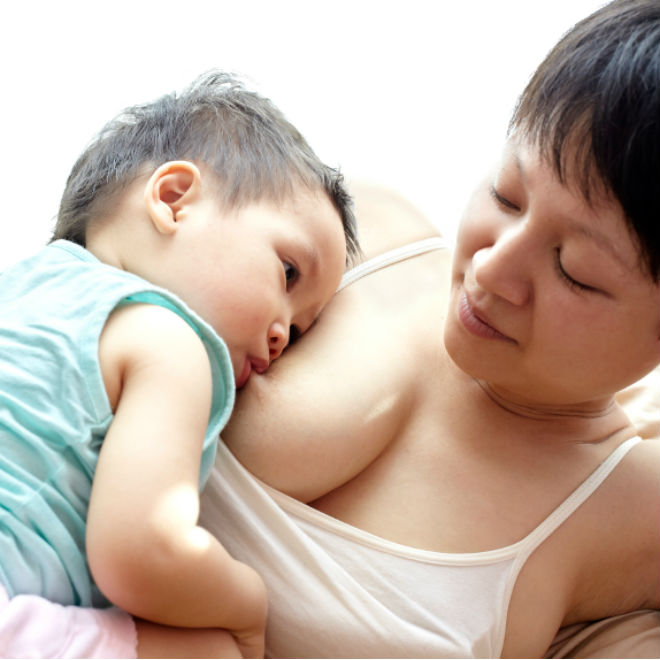 Remember that the potassium permanganate solution should be slightly pink, and do not give potassium permanganate to children under 5 years old. nine0003
Remember that the potassium permanganate solution should be slightly pink, and do not give potassium permanganate to children under 5 years old. nine0003
Use sorbents to remove absorbed harmful substances and toxins from the child's intestines. These are substances that draw toxins into themselves and then remove them from the body. Popular drugs are: activated carbon, Polyphepan, Karbolong. But remember that in some cases - with ulcerative and erosive lesions of the intestines and stomach, these drugs may be contraindicated. The drug Enterosgel is very popular, it does not irritate the mucous membranes and has excellent sorption properties of toxins, and it also sorbs bilirubin. nine0003
In case of poisoning accompanied by diarrhea and flatulence, Bifilact extra or Extralact can be used, they also contain microbial components that restore the normal intestinal flora. It’s also a good idea to use Smecta - it protects the inflamed mucous surfaces from the effects of viruses and toxins and restores the stool. Please note that Imodium (Loperamide) is not recommended to be used alone for food poisoning, since if used incorrectly, even more active absorption of harmful substances into the blood is possible. nine0003
Please note that Imodium (Loperamide) is not recommended to be used alone for food poisoning, since if used incorrectly, even more active absorption of harmful substances into the blood is possible. nine0003
In any case, do not self-medicate your children with food poisoning, always consult a doctor!
Site article -"Children's Safety"
What to do, can you feed the child
complain
Updated
Content:
Causes and signs of poisoning
What to do
,
How to eat after recovery
Prevention of poisoning during breastfeeding
All the nutrients necessary for the development of the body, the infant receives with mother's milk. The reasons why a woman stops feeding are varied - ranging from hypogalactia to poisoning during breastfeeding.
Poisoning during breastfeeding forces lactation to stop
Causes and signs of poisoning
nine0002 During lactation, special attention should be paid to the diet and diet.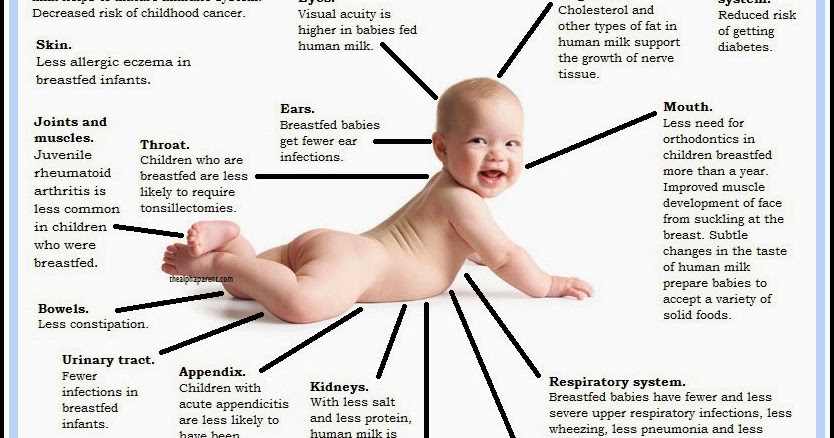 It is important that the menu is balanced, complete and varied, does not contain harmful dyes and preservatives. If these conditions are violated, consuming stale, expired products, poisoning may occur during breastfeeding, which is manifested by the following symptoms:
It is important that the menu is balanced, complete and varied, does not contain harmful dyes and preservatives. If these conditions are violated, consuming stale, expired products, poisoning may occur during breastfeeding, which is manifested by the following symptoms: - nausea;
- vomiting;
- abdominal pain;
- swelling; nine0049 loose stools;
- the presence of undigested food, pathological impurities in the stool;
- general weakness, lethargy, apathy;
- temperature increase.
The severity of poisoning can be judged by the severity of the listed symptoms. In severe cases, dehydration occurs, which requires immediate hospitalization. A severe degree of dehydration is indicated by a decrease in skin turgor, severe weakness, a decrease in all body functions, a decrease or absence of urination. nine0003
What to do
Any sign of poisoning should call an ambulance. This measure is explained by the fact that a breastfeeding woman passes on to the baby with milk not only nutrients, but also various toxins that are formed as a result of poisoning.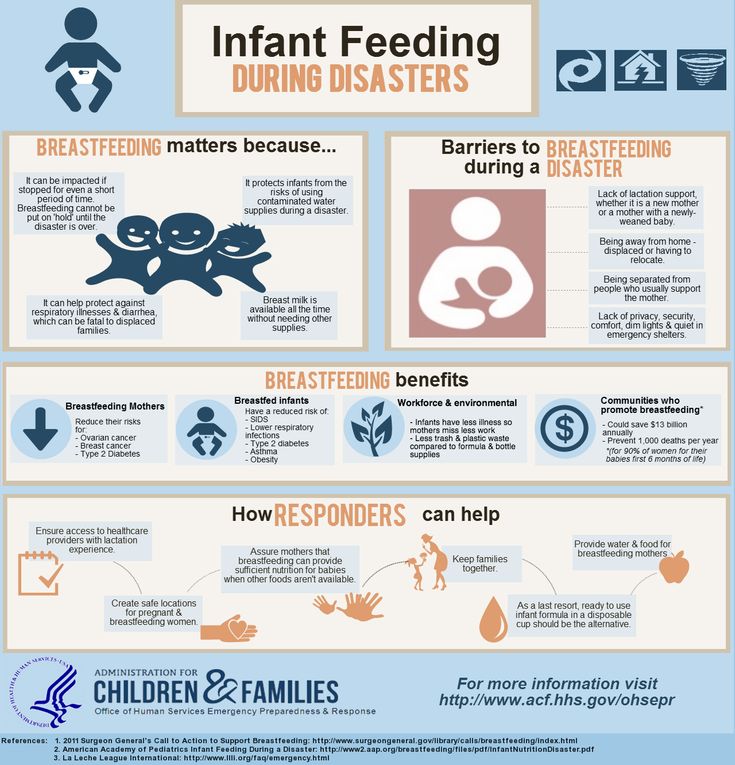
Stop feeding in any case, regardless of the cause of indigestion, whether it is food poisoning or medication. In addition, a woman is unlikely to independently determine the cause of the disease. There is a possibility that there is a food poisoning. Only a doctor can judge the possibility of continuing further feeding. nine0003
What to do in case of poisoning, the doctor will say
Even if signs of poisoning are mild, medical attention should still be sought immediately. Similar symptoms may be a manifestation of other diseases, therefore, to make a correct diagnosis, you need to undergo an examination.
How to provide first aid for nausea and vomiting:
- Drink as much plain boiled or filtered water as possible to replace the lost fluid. Alkaline mineral water will do. You can take a drug that restores water balance. Do not immediately drink a large amount of liquid. It is better to drink 100-150 ml every 10-15 minutes. nine0050
- You can drink weak sweet tea, compotes, fruit drinks.
- You can take activated carbon - 1 tablet for every 10 kg of body, dioctahedral smectite, enterosorbents.
- Refrain from enemas until the exact cause of the ailment is established, since another disease may occur under the guise of poisoning.
- Refrain from eating until the condition improves or the exact cause of the ailment is clarified, if required by the doctor. nine0077
- dairy products;
- meat and fish;
- vegetables and fruits;
- durum pasta;
- eggs;
- cereals;
- cereals;
- moderate amount of sugar and sweets.
- citrus fruits;
- strawberries;
- chocolate; nine0049 cocoa;
- smoked products;
- pickles;
- red berries, fruits, if the child has symptoms of hypersensitivity.
- it is advisable to wash fruits and vegetables with boiled water, and then pour boiling water over them;
- you need to drink boiled water, even if there is a water filter at home.
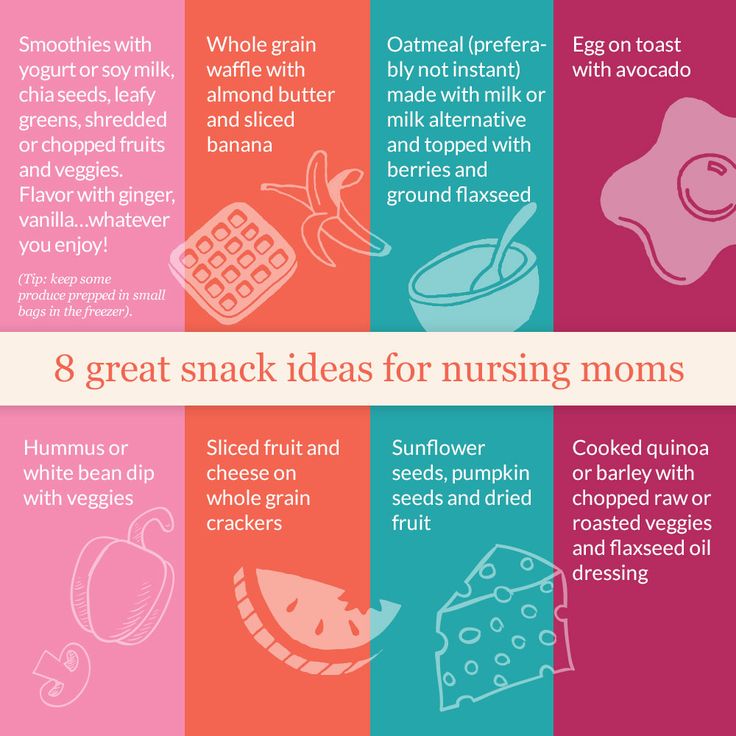 This also applies to bottled purchased drinking water; nine0049 meat and fish must be properly cooked or fried;
This also applies to bottled purchased drinking water; nine0049 meat and fish must be properly cooked or fried; - should use different cutting boards for slicing meat and vegetables.
On the first day of poisoning, it is advisable to refrain from heavy meals, even if it gets better after a short period of time. You should limit yourself to tea with crackers, you can drink chicken broth without any additives. The first water after boiling when cooking the broth is drained, as it contains harmful and toxic substances. In the evening, you can drink low-fat fresh yogurt or fermented baked milk.
While breastfeeding is prohibited, care must be taken to ensure that the child is well fed. An adapted milk formula is the best way out, but you should consult a pediatrician before using it.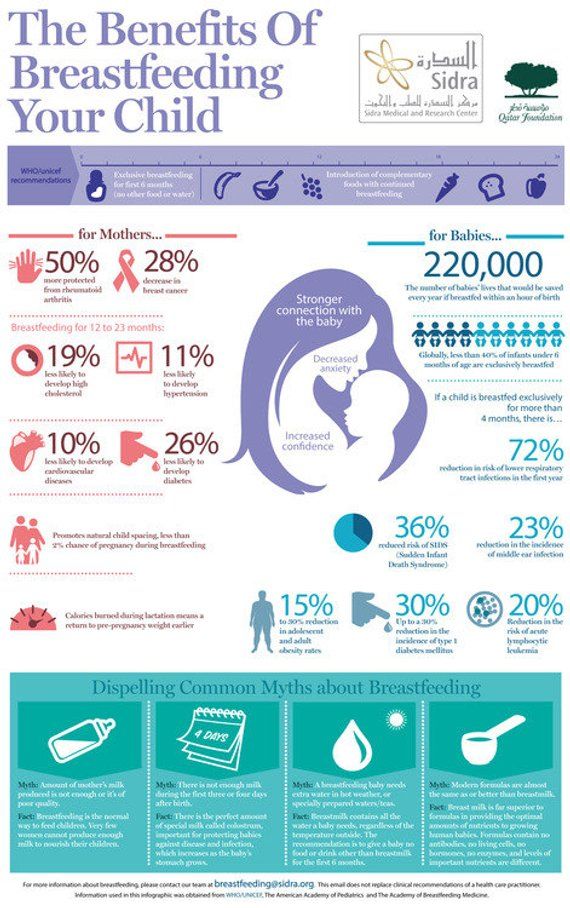 The specialist will tell you what can be given to the child and what not, select the appropriate amount of the mixture, frequency and mode of feeding, and also advise you to use additional foods or take vitamin complexes, if the child needs it. nine0003
The specialist will tell you what can be given to the child and what not, select the appropriate amount of the mixture, frequency and mode of feeding, and also advise you to use additional foods or take vitamin complexes, if the child needs it. nine0003
When to resume feeding
The pediatrician decides whether to continue feeding. You can give your baby breast milk only after the body is cleansed of toxins. The absence of symptoms such as nausea, upset stool and vomiting in a nursing mother does not always indicate that the body is fully restored and there are no harmful substances in the milk. It is important to undergo the necessary examinations, adhere to the prescribed treatment and diet. nine0003
Hospitalization may be appropriate in some cases. The offer of health workers to go to the hospital in case of poisoning is most likely justified, and it is better to receive qualified medical care under the continuous supervision of specialists.
In case of severe intoxication, one drink will not be enough.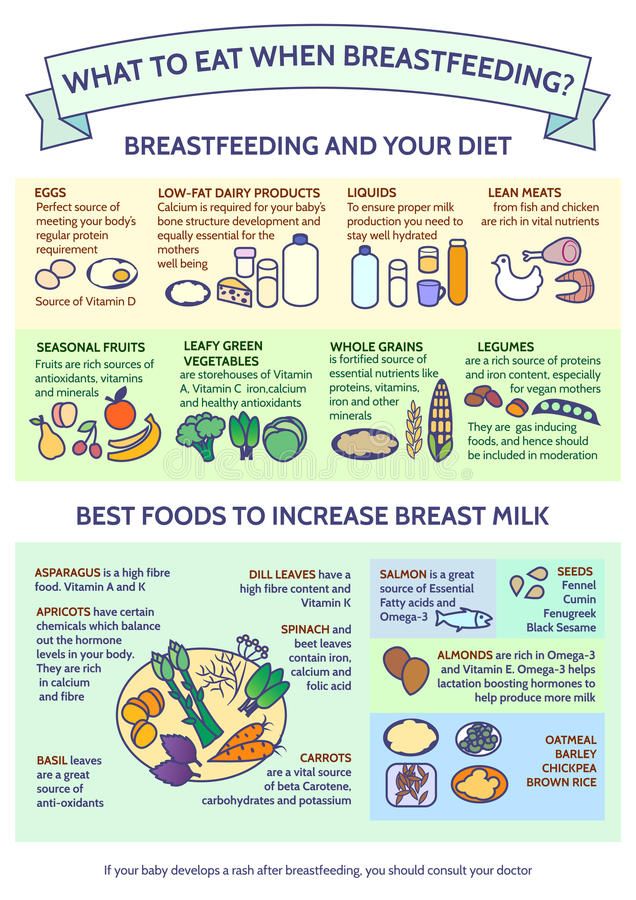 Infusion therapy may be required in a hospital setting.
Infusion therapy may be required in a hospital setting.
How to eat after recovery
For good lactation, a woman must receive all the necessary substances and trace elements. You should avoid semi-finished products, fatty, smoked, peppery dishes, foods with bright flavoring. nine0003
Recommended for HB:
Breast-feeding to be excluded:
In addition, it must be taken into account that some products with a pronounced taste can spoil the palatability of milk and the baby will refuse to breastfeed. These products include onions, garlic, some types of cabbage, radish, etc. It is also better to exclude fermenting foods: grapes, sweet curd mass, an abundance of sugar, legumes. nine0003
These products include onions, garlic, some types of cabbage, radish, etc. It is also better to exclude fermenting foods: grapes, sweet curd mass, an abundance of sugar, legumes. nine0003
Care must be taken to restore lactation after food poisoning when the mother's health is fully restored
Prevention of poisoning while breastfeeding
Preventive measures are reduced to the rational organization of the regimen and nature of nutrition. Purchased semi-finished products, raw smoked sausages, conservation of dubious production should be excluded. When buying products, be sure to pay attention to the expiration date. nine0003
In order to prevent food poisoning, it is not recommended to eat in public places, cafes and other catering establishments. A woman must necessarily observe the rules of personal hygiene and the requirements for culinary processing of food:
So, any manifestations of poisoning require a temporary cessation of breastfeeding, especially when it comes to severe intoxication. It is necessary to immediately seek medical help to identify the cause of the ailment and decide on the possibility of feeding. It must be remembered that the symptoms of ordinary HB poisoning can accompany other diseases, so you should not risk your own health and the health of the child. nine0003
Read the following article: is it possible to drink activated charcoal with breastfeeding
* The information provided cannot be used for self-diagnosis, treatment determination and does not replace a visit to a doctor!
RubricBreastfeeding
What to do if a breastfeeding mother has a chest pain
Can I eat oatmeal cookies while breastfeeding
The road to raising children is sometimes bumpy.